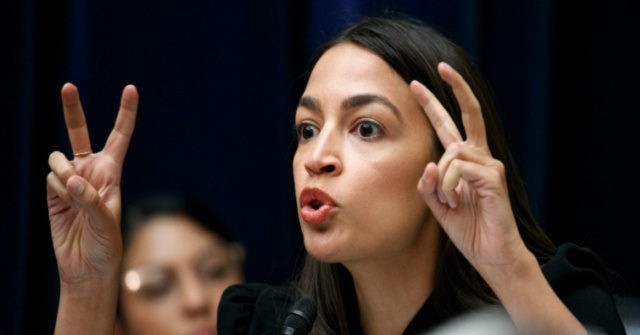Rep. Alexandria Ocasio-Cortez (D-NY), widely known as AOC, has recently faced criticism for a get-out-the-vote (GOTV) flyer that included Arabic text formatted incorrectly. The flyer featured Arabic that was printed backwards and in disconnected script, which does not conform to standard Arabic writing conventions. In Arabic, the text is read and written right-to-left, and this misprinting likely resulted from a translation error where basic text conversion tools may have flipped the letters while failing to recognize the connected nature of the script. This mishap led to the first Arabic word intended to convey “voting” being rendered incorrectly, further amplifying the issues with the flyer.
The mishandling of the Arabic text points to a lack of engagement with individuals proficient in the language, raising concerns about the effectiveness of outreach efforts towards the Arab American community by the Democrats. As the party aims to galvanize Arab American voters, especially in opposition to political figures like Donald Trump, such missteps can undermine their credibility. The flyer’s glaring errors illustrate a broader trend wherein political messaging aimed at ethnic and linguistic minorities may fall short due to oversight and inadequate preparation. The significance of accurate representation in campaign materials cannot be overstated, particularly in gaining the trust of diverse voter bases.
Moreover, the political landscape for Arab American voters has been shifting in recent years, particularly in the context of the ongoing conflict in the Middle East. The Biden-Harris administration has faced criticism from within the Arab American community over its handling of foreign policies and the war, leading some previously aligned voters to reconsider their support. The discord connects to deeper issues surrounding foreign policy, with some Muslim voters now exploring the option of supporting Trump as a form of protest against the current administration. This evolving political dynamic calls attention to the fragility of voter loyalty and the complexities that define political affiliations among minority groups.
Interestingly, some Arab Americans have voiced their support for Trump, particularly in states like Michigan, which has a significant Arab American population. This unexpected trend illustrates a growing discontent among specific segments of the community, particularly in response to the perceived inadequacies of the Democratic party’s policies. Many individuals within both Christian and Muslim Arab American communities are increasingly critical of not only foreign policies but also the social agendas and economic strategies articulated by Vice President Kamala Harris and her party. This sense of disillusionment strongly impacts potential voting behaviors leading up to the elections.
The implications of these dynamics extend beyond simple political calculations; they speak to the overall narrative surrounding cultural representation and inclusivity in political messaging. The gaffes in the GOTV flyer reflect a broader failure to adequately recognize and engage with the specific cultural and linguistic needs of diverse voter populations. This incident sheds light on the importance of creating campaign materials that resonate authentically with ethnic communities while emphasizing an understanding of their unique challenges and perspectives. Without this level of sensitivity and engagement, efforts aimed at voter mobilization may yield disappointing results.
Finally, as the 2024 elections approach, understanding the evolving political sentiments within the Arab American community will be crucial for any party hoping to capture their support. Missteps, like the confusion with the Arabic on AOC’s flyer, highlight the necessity for political candidates and their teams to prioritize cultural competence and effective communication strategies. In an increasingly polarized political environment, fostering genuine relations with minority communities will be essential for constructing a coalition that can effectively counter opposition agendas and promote a united front in electoral battles. Moving forward, engaging with historians, linguists, and community leaders can lead to more effective outreach and ensure that all constituents feel represented and respected in the political discourse.

